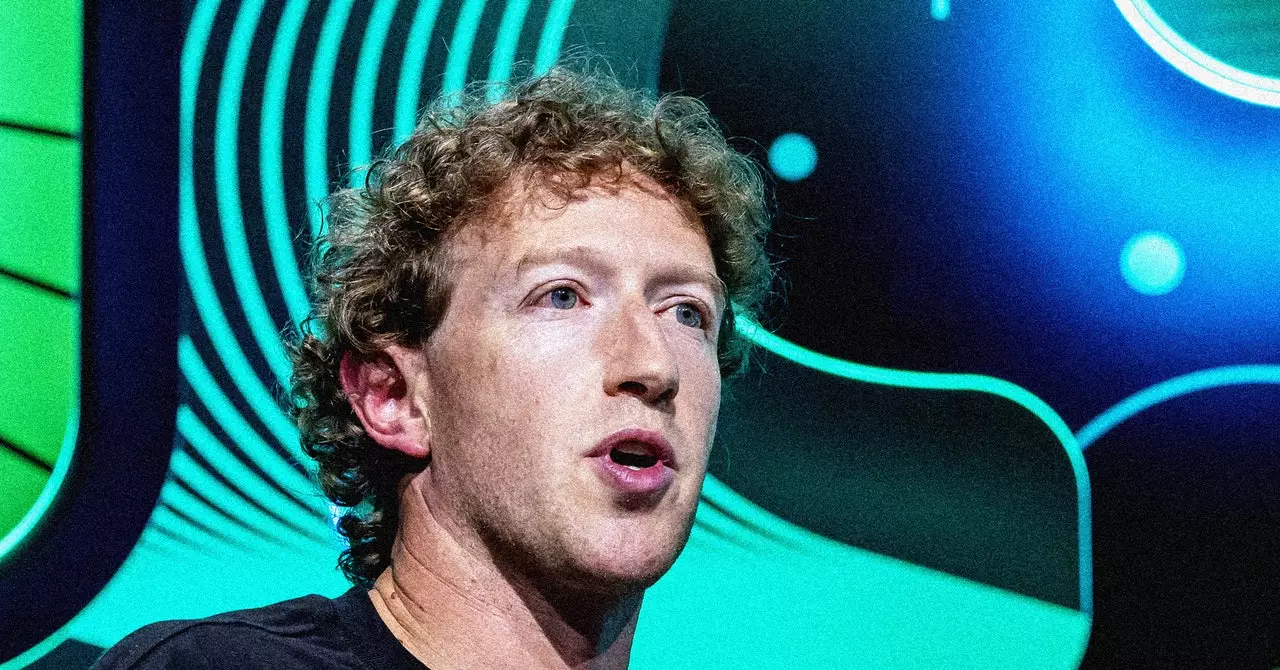The digital age has ushered in numerous challenges for social media platforms, and none perhaps more pressing than the dilemma of content moderation. Mark Zuckerberg, the CEO of Meta (formerly Facebook), has intricately woven his company into the fabric of modern communication, but this relationship has not been without strife. The 2018 optimism surrounding Zuckerberg’s acknowledgment of the dangers posed by misinformation has given way to a controversial shift in policy that raises questions about responsibility, credibility, and the implications of unmoderated content.
In 2018, Zuckerberg’s vision was clear: he intended to adopt a more proactive approach to moderating content. As he welcomed a journalist into his home, he articulated his understanding of the negative influence that harmful content—be it misinformation or hate speech—had on the platform and society at large. The plan was to enhance moderation efforts by investing in human resources and utilizing artificial intelligence to combat toxic content. In his sunny abode, Zuckerberg expressed a commitment to a safer environment on Facebook, suggesting a moral obligation to his audience. He recognized the gravity of the problem and felt that inadequate responses could lead to significant societal consequences.
Fast forward seven years, and the narrative has changed dramatically. Zuckerberg’s recent remarks regarding content moderation hint at a philosophical pivot—one that positions the responsibility of managing disinformation not solely on Meta but also on its users. By discontinuing proactive measures and the fact-checking initiatives designed to stymie the spread of falsehoods, he has effectively shifted the narrative around accountability.
Zuckerberg now extols the virtues of free expression, shifting the balance from vigilant moderation back toward the realm of user-generated assessments of accuracy. The introduction of “community notes” as a substitute for empirical fact-checking illustrates this transformation, yet it raises critical concerns about the feasibility of accurate discourse in a polarized media environment. Community notes do encourage public participation, but they also lack the authority and reliability that dedicates serious journalistic efforts.
This development mirrors a wider trend in which established journalistic credentials are increasingly dismissed or seen as less trustworthy than the cacophony of voices on social media. The troubling implication is that misinformation can be as prevalent—if not more so—than informed narratives, leading to a social fabric where “truth” becomes subjective, shaped by the whims of community sentiment rather than empirical evidence.
Zuckerberg’s changes are not happening in a vacuum; they align interestingly with broader political shifts. By promoting former GOP operative Joel Kaplan to chief global affairs officer and relocating content moderation teams from California to Texas, Zuckerberg appears to cater to a political atmosphere that exhibits growing skepticism towards established media institutions and regulatory pressures. This realignment suggests not just a business strategy but also an intent to foster a user base that feels liberated from perceived media bias.
However, this can lead to complications. Emphasizing free expression without adequate context or moderation could embolden extremism. By creating a space where all voices—no matter how baseless their claims—are treated equally, Zuckerberg’s vision risks eroding trust in not only social platforms but also in genuine journalistic practices. In an age where misinformation is rampant, the danger lies not in the volume of content expressed but in the consequences of unbridled expression.
Mark Zuckerberg’s concepts reflect a fundamental paradox of free speech: Does more speech truthfully counterbalance harmful rhetoric? This conundrum echoes sentiments expressed by political figures who have weaponized mistrust in media as a tactic to shift accountability. By minimizing the role of fact-checkers and diminishing the legitimacy of trained journalists, Zuckerberg has inadvertently normalized the idea that mainstream journalism is no different from any opinion voiced by the general public.
The implications of this model extend beyond social media—challenging how society values truth, authority, and accountability. In a world increasingly suffocated by misinformation, where editorial integrity is supplanted by personal opinion, we must question: What becomes of objective truth, and how do we safeguard informed discourse?
The path chosen by Zuckerberg indicates a willingness to embrace a distorted form of free speech at the expense of established journalism. While the aspiration for open dialogue is commendable, the discerning public must remain vigilant against the dissolution of facts amidst a swirling tide of subjective narratives. As social media continues to evolve, does it herald an era of informed discourse or lead us into an abyss of misinformation? Only time will tell.

